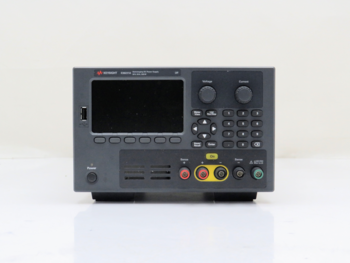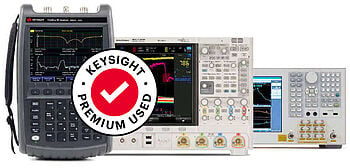- Introduction
- Understanding DC Power Supply
- The Role of a DC Power Supply
- Components of a DC Power Supply
- Transformer
- Rectifier
- Filter
- Voltage Regulator
- Types of DC Power Supplies
- Linear Power Supply
- Switching Power Supply
- Programmable Power Supply
- Uninterruptible Power Supply (UPS)
- Choosing the Right DC Power Supply
- Powering Testing Equipment with DC Power Supplies
- Power Requirements
- Connector Compatibility
- Testing and Calibration of DC Power Supplies
- Checking Stability
- Measuring Ripple Voltage
- Verifying Output Accuracy
- Understanding Load Changes Impact on DC Power Supplies
- Real-World Uses of DC Power Supplies
- Telecommunication Systems
- Automotive Industry
- Medical Devices
- Consumer Electronics
- Industrial Processes
- Conclusion
- Whenever You’re Ready, Here Are 4 Ways We Can Help You
이 페이지는 현재 한국어가 제공되지 않습니다. 빠른 시일 내에 더 많은 콘텐츠 제공과 함께 한국어 지원을 할 예정이오니 조금만 기다려 주십시오.
투표해 주셔서 감사합니다.Behind every successful measurement in an electrical engineering lab, there's a device we often take for granted – the DC power supply. Silent, yet crucial, it shapes the outcome of your experiments. Intriguing, isn't it? It might not steal the limelight like high-tech measuring equipment or cutting-edge digital systems, yet its importance remains undiminished.
Every signal you measure, every waveform you analyze, ultimately traces back to a source of power that lets your electronic components come to life. The DC power supply is an unsung hero of the electrical engineering world. This article explores the importance of DC power supply, it’s function, components, types, and the critical role it plays in electrical and electronics engineering.
Understanding DC Power Supply
A direct current (DC) power supply is an integral piece of equipment used in many applications that require the conversion of alternate current (AC) voltage into DC voltage. Unlike AC, where the current periodically changes direction, DC allows current to flow consistently in one direction.
Key characteristics of a DC power supply include:
- Unidirectional current flow
- Stable voltage output
- Conversion of AC to DC
- Capability to transform voltage levels
| Key Takeaway |
|---|
| DC power supplies play a pivotal role in our technology-driven world. Unlike AC, DC current flows consistently in one direction, making it a safe, usable form of energy for a wide range of electronic devices, from everyday consumer electronics to specialized industrial machinery. |
The Role of a DC Power Supply
The role of a DC power supply extends from a simple household device charger to powering sophisticated scientific equipment and large-scale industrial machinery. It's also essential in electronics testing and development, where devices require stable and reliable power for optimal performance.
Some common applications include:
- Providing power for electronic circuits during testing and development.
- Powering electronic devices like laptops, phones, and other portable electronics.
- Supplying power to telecommunications equipment.
- Driving motors in various industrial processes.
- Charging batteries.

Components of a DC Power Supply
A typical DC power supply unit consists of several critical components, each playing a distinct role in converting, conditioning, and stabilizing the output voltage.
Transformer
The transformer is the first point of contact for the incoming AC voltage. It's primarily used to step down or occasionally step up the incoming voltage to the desired level.
Rectifier
This component is responsible for the initial conversion of AC to DC. The rectifier allows current to flow in only one direction, thereby creating a unidirectional current from an AC input.
Filter
After rectification, the DC output still contains some AC components, known as ripples. A filter, often a capacitor, is used to reduce these ripples and smooth the output.
Voltage Regulator
A voltage regulator is used to maintain a constant output voltage. This ensures the output of the power supply remains stable, even under varying load conditions.
Types of DC Power Supplies
There are several types of DC power supplies, each with its unique characteristics and use-cases.
Linear Power Supply
A linear power supply uses a linear regulator to maintain a steady output voltage. It's known for its simplicity and its ability to provide clean, noise-free output voltage. However, it's often less efficient and generates more heat compared to other types.
Switching Power Supply
Also known as a switch-mode power supply (SMPS), it uses high-frequency switching to regulate the output voltage. While it's more efficient and generates less heat than a linear power supply, it can introduce noise into the output.
Programmable Power Supply
This power supply type allows the user to control the output voltage and current programmatically. It's beneficial for testing and development purposes.
Uninterruptible Power Supply (UPS)
UPS provides power during power outages, protecting equipment from power interruptions. While it's not strictly a DC power supply, it often includes a DC power stage.
Limited: Used Power Supplies On Sale
비교할 최대 3개 기기를 선택하세요
Choosing the Right DC Power Supply
Selecting the right DC power supply depends on a variety of factors like required voltage, current, stability, and application.
Here is a quick comparison table of different power supply types:
| Power Supply Type | Efficiency | Noise Level | Complexity | Use-Cases |
| Linear | Low | Low | Low | High-precision applications, audio electronics |
| Switching | High | High | High | Consumer electronics, computer power supplies |
| Programmable | Varies | Varies | Medium | Testing and development, R&D |
| UPS | High | Low | High | Power backup, critical systems |

Powering Testing Equipment with DC Power Supplies
DC power supplies are fundamental in driving various testing and measuring equipment. It is crucial to understand each device's specific power requirements to ensure optimal operation and prevent potential damage.
Power Requirements
Each piece of testing equipment, whether an oscilloscope, function generator, or spectrum analyzer, has specific power requirements. Engineers must ensure that the DC power supply can provide the necessary voltage and current levels consistently and efficiently.
Connector Compatibility
Ensuring connector compatibility between the power supply and the device is vital. Incompatibility can lead to ineffective power transfer and may even cause equipment damage.
Testing and Calibration of DC Power Supplies
Electrical engineers often use equipment like oscilloscopes and multimeters to test and calibrate DC power supplies, ensuring their accuracy and stability.
Checking Stability
Using an oscilloscope, engineers can observe the stability of the output voltage of a power supply over time. Stability checks are essential in applications where even minor voltage fluctuations can lead to significant problems.
Measuring Ripple Voltage
The ripple voltage, or the AC voltage superimposed on the DC output, can be measured using an oscilloscope. Minimizing the ripple is crucial for the power supply to operate efficiently and provide a stable output.
Verifying Output Accuracy
Engineers often use multimeters to verify the accuracy of the output voltage and current of a DC power supply. This step is crucial for ensuring the power supply can provide the rated output accurately.
Understanding Load Changes Impact on DC Power Supplies
It is important to know how DC power supplies respond to changes in the load because this can affect measurements and the performance of testing equipment.
- Load Regulation refers to the power supply's ability to maintain a constant output voltage despite changes in the load. A power supply with good load regulation is critical for accurate measurements.
- Transient Response refers to how quickly the power supply can respond to sudden changes in the load. A slow response could lead to temporary inaccuracies in the output voltage.
Real-World Uses of DC Power Supplies
DC power supplies are ever-present in our everyday lives, powering a myriad of devices and systems. DC power supply is widely used because many electronic devices need a steady and uninterrupted flow of electric current in one direction.
Telecommunication Systems
Telecommunication equipment, like routers and switches, extensively uses DC power supplies. These devices require stable, noise-free power to ensure uninterrupted and quality communication services.
Automotive Industry
From powering onboard electronics to charging electric vehicle batteries, DC power supplies play a crucial role in the automotive industry. For example, the battery chargers used in electric vehicles are essentially high-power DC supplies that convert AC power from the grid to DC power to charge the vehicle’s battery.
Medical Devices
Healthcare equipment, such as patient monitors, defibrillators, and MRI machines, relies heavily on DC power supplies. Their ability to provide clean, stable power ensures the safety and accuracy of these life-saving devices.
Consumer Electronics
Nearly all consumer electronics, including mobile phones, laptops, gaming consoles, and TVs, use DC power supplies. The DC power adapter used to charge electronic devices such as laptops and phones works by converting the AC power from the wall outlet into the DC power necessary for the device to operate.
Industrial Processes
Industrial processes such as chemical electrolysis, metal plating, and large-scale manufacturing equipment all necessitate the use of DC power. In these cases, DC power supplies are used because they can deliver high current levels consistently and efficiently.
Conclusion
In the realm of electrical engineering, the DC power supply is an unsung hero, a vital force behind the scenes. It is the heartbeat of every piece of testing equipment, from oscilloscopes to function generators. For precise and accurate measurements, every unit, regardless of its intricacy, depends on a DC power supply that changes AC to DC power. This ensures a consistent and dependable source of energy.
Whether you're calibrating a multimeter or powering up a state-of-the-art spectrum analyzer, remember that a high-quality DC power supply is at work behind the scenes. But where can you find such dependable units?
Enter Keysight's Used Equipment Store, your one-stop solution for premium used DC power supply units for all applications. From entry-level units to advanced power supplies, Keysight offers quality-tested, reliable options to meet your diverse testing needs.

Whenever You’re Ready, Here Are 4 Ways We Can Help You
- Browse our Premium Used Equipment.
- Call tech support US: +1 800 829-4444
Press #, then 2. Hours: 7 am – 5 pm MT, Mon– Fri - Talk to our sales support team by clicking the icon (bottom right corner) on every offer page
- Talk to your account manager about your specific needs

Subscribe to Get Our Latest News, Updates, and Articles.
Limited Deals: Used Power Supplies On Sale Right Now
비교할 최대 3개 기기를 선택하세요
Enable Notifications
In order to use this feature, you need to enable notifications.
Manage notification preferences